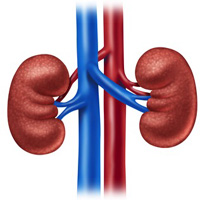Early morning kidney transplantation: Perioperative complications

Accepted: February 23, 2021
All claims expressed in this article are solely those of the authors and do not necessarily represent those of their affiliated organizations, or those of the publisher, the editors and the reviewers. Any product that may be evaluated in this article or claim that may be made by its manufacturer is not guaranteed or endorsed by the publisher.
Authors
Introduction: To reduce cold ischemia time (CIT), many kidney transplants are performed in the early morning. Conducting complex surgeries in the early morning may influence the surgeon's technical capacity and rate of surgical complications (SC). Aim: Evaluate the influence of surgery start hour (SSH) regarding duration of surgery (DS), immediate diuresis (ID), SC and acute rejection (AR); evaluate the influence of CIT regarding SC, ID, and AR.
Methods: 2855 cadaveric transplants performed between June 1980 and March 2018 were retrospectively evaluated. Regarding SSH, two groups were created: Group M (00: 00h-05.59h, n = 253) and Group D (06: 00h - 23: 59h, n = 2602). Analyzing the impact of SSH on DS, ID, SC and AR. Evaluate the relationship between CIT (< 18h, 18-30h and > 30h) on ID, SC and AR utilizing univariate and multivariate statistical analysis with SPSS.
Results and Conclusion: Groups M and D were comparable in all evaluated demographic variables (p > 0.05), except cold ischemia time (Group M with higher CIT, p < 0.001). Regarding univariate analysis, Surgery start hour did not influence DS (p = 0.344), and SC (p = 0.264), but related with higher ID (p = 0.028) and AR (p = 0.018). CIT related with immediate diuresis (p = 0.020) and acute rejection (p < 0.001) but did not relate with complications (p = 0.734). Regarding multivariate analysis, SSH only influenced immediate diuresis (p = 0.026) and did not influenced acute rejection (p = 0.055). CIT influenced immediate diuresis (p = 0.019) and acute rejection (p < 0.001). Surgery start hour influences Immediate diuresis. With this study, we conclude that the priority must be a short cold ischemia time.
How to Cite
PAGEPress has chosen to apply the Creative Commons Attribution NonCommercial 4.0 International License (CC BY-NC 4.0) to all manuscripts to be published.

 https://doi.org/10.4081/aiua.2021.2.158
https://doi.org/10.4081/aiua.2021.2.158



